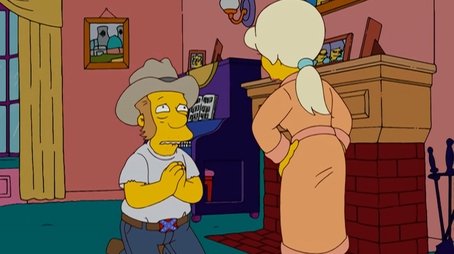
Sorry, we have not watched this yet.

The Simpsons take in a country singer Homer used to manage who owes back taxes to Springfield. She is now destitute, so the family tries to help her get back on her feet.
Sorry, we have not watched this yet.